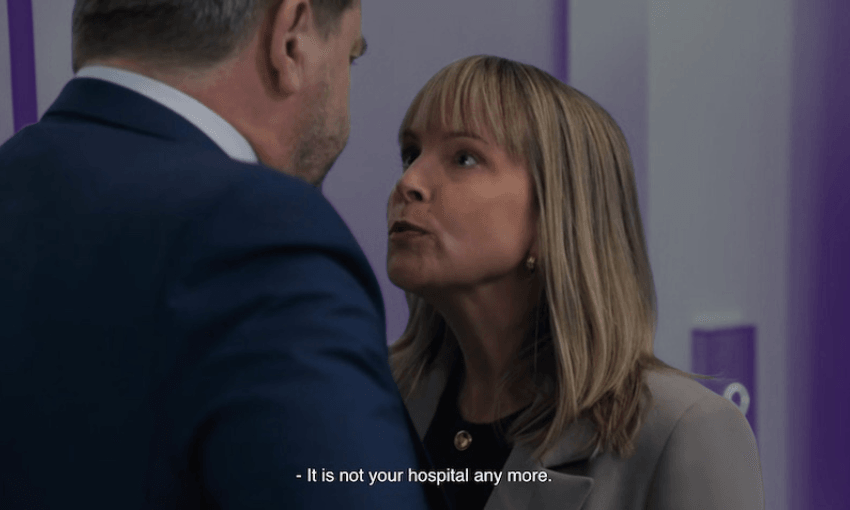Avi Duckor-Jones won Survivor NZ after 40 days living on a deserted stretch of coast, fighting to stay alive. He’s also a teacher in a New Zealand school.
I have often been asked the question: “Which has been harder? Survivor or teaching?”
In the past I’d laugh and provide a practised answer, but on the dawn of our nationwide teacher strike, I found that if I really thought about it, I couldn’t think of an honest response.
To examine the question closer, I dug out my Survivor journal, laid it beside my teaching journal, and went through the two methodically searching for my answer.
Before I read, I thought about one of the writers I took a group of students to see at the Auckland Writers Festival. Akala, founder of the Hip Hop Shakespeare Company, showed students that Shakespeare was not entirely dissimilar to contemporary hip hop. He offered up a series of quotes and asked the audience whether it came from Shakespeare or hip hop. In most cases, the audience was divided, unable to decipher to which genre and period the quote belonged.
I found, as I worked through my two journals, that the same exercise could be applied to my experiences on Survivor and in the classroom and that in fact, the two experiences were remarkably similar:
“This whole thing is unrelenting. Just as our tribe is recovering from another loss, we are thrown with another immunity challenge.” – Survivor.
“Man, this whole thing is unrelenting. Just as we have received back our piles of exams to mark, we are hit with reports, registers are due, and juniors are handing in Assessments to be marked too. It all just keeps piling up.” – Teaching.
“Sometimes it’s hard to imagine that this will finish, and I’ll be free to run and surf and read and write again. Sometimes it’s hard to think about anything other than this game.” – Survivor.
“I miss having time. Time is something that I’ve lost in this work. All I can think about is school, and everything I have to do.” – Teaching.
“I’m surviving day by day at the moment.” – Survivor.
“It’s hard to keep up. I’m living day to day at the moment.” – Teaching.
“I love this game, but I’m beginning to wonder if the difficulty is starting to outweigh the potential win.” – Survivor.
“I love my kids, and being in the classroom, but the admin is totally outweighing that part of teaching these days.” – Teaching.
“It’s sometimes hard to keep up a positive front.” – Survivor.
“It’s sometimes hard to stay positive in front of the kids.”– Teaching.
“We are all exhausted.” – Survivor.
“We are all burned out.” – Teaching.
“I am completely rinsed, my body feels weak and I am perpetually tired,” – variations of this sentiment featured heavily in both.
I get asked whether Survivor was real, when people I meet are suspicious and argue that’s it’s all just a production. I find myself defending the exhausting journey, the challenge, the hardship, the defeats and triumphs, to try and make them see how hard we all had to fight to stay in the game.
Similarly, people tell me that teachers should stop complaining, with the perks of holidays and 9-3 days that are provided with the job. I tell those people that our days are not short. Our days are bookended with meetings, marking and planning, padding either side of class-time with considerable work. Our holidays are very well earned and necessary for sustainability however they too are shortened with marking and planning.
The question therefore remains: what is harder? Forty days living on a deserted stretch of coast, starving, fighting to stay alive in a game that requires physical, mental and social endurance or teaching? Teaching requires patience, dedication, planning, strategy and empathy with a great deal of responsibility, and it is a hell of a lot longer than 40 days.
Teachers are not working hard to win a game, they are working hard to serve the youth of New Zealand and build a better future for our communities. Teachers once stood alongside lawyers and doctors as the most respected professions in our community, but it is starting to feel more and more like an endurance test that we’d expect to see on television, rather than an essential and incredibly important role in our society. So, what has changed? Those I work with, those who turn up every day to their classrooms with enthusiasm and passion, those who dedicate all the time and energy they have to the students before them, they deserve more.
In Survivor, I won and walked away with the prize money that made the tireless work worth it. In New Zealand, passionate, hardworking, quality teachers are walking away from the profession in droves, simply because their reward isn’t monetary, and often passion and hard work is simply not enough to survive. What will make teaching a more sustainable and attractive profession? Pay. There are incredible educators out there, who are heading overseas, and our Tamariki deserve better. They deserve the best, and they are here, ready and willing to serve.



